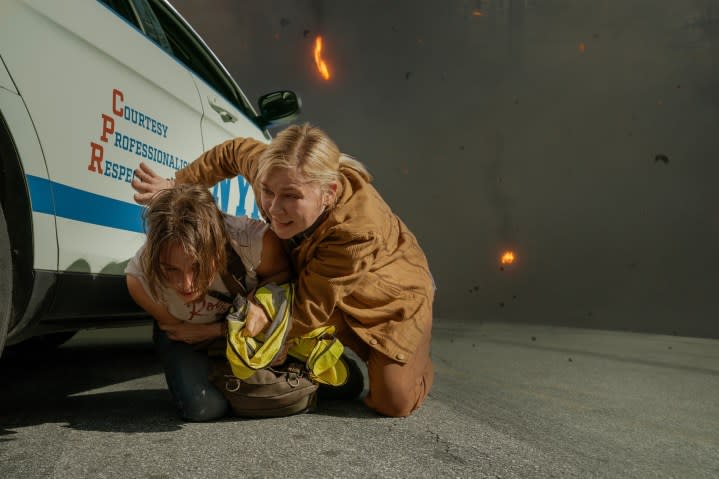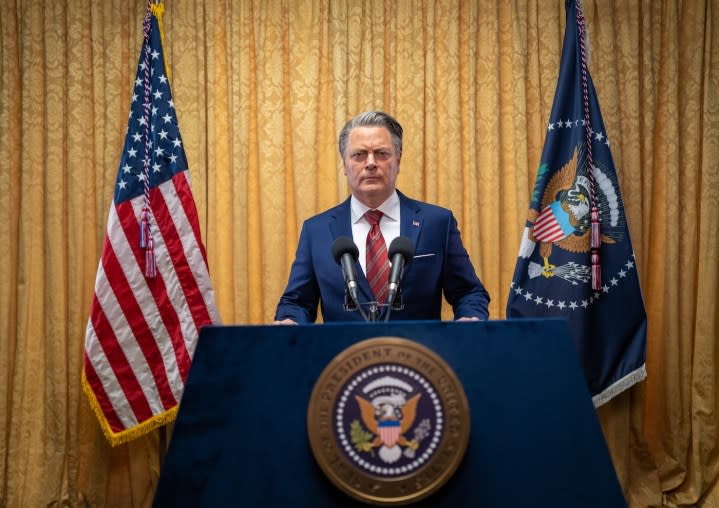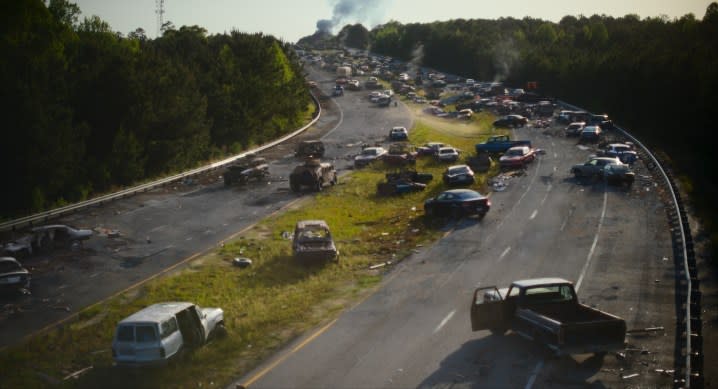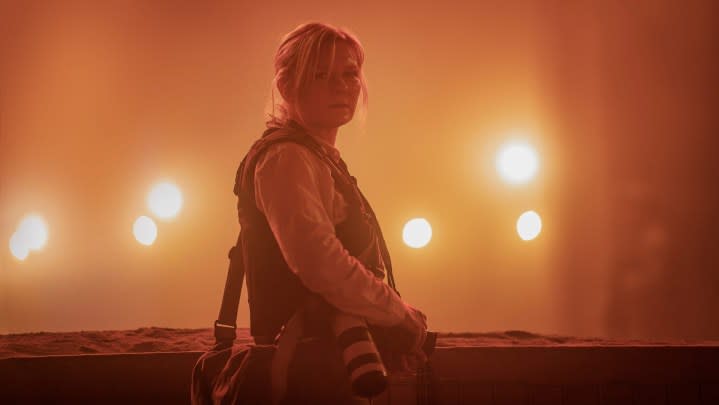Civil War’s ending, explained

- Oops!Something went wrong.Please try again later.
- Oops!Something went wrong.Please try again later.
Warning: This article contains spoilers for Civil War.
Alex Garland’s newest film Civil War picks up at the height of a modern-day civil war taking place in America. But much like Garland’s other hits like Ex Machina and 28 Days Later, the plot of Civil War serves mainly as a vehicle for emotional provocation and character building. The film follows a group of war reporters – veteran photojournalists Lee (Kirsten Dunst) and Joel (Wagner Moura) and the novice Jessie (Cailee Spaeny) – as they make their way to Washington DC, sensing that an epic conclusion to the war is about to reshape America. .. and make for an award-winning story.
Throughout the movie, the group travels across America toward Washington, where the Western Forces (an allegiance between California and Texas) are trying to besiege the capital and force the President of the United States (Nick Offerman) to surrender. But along the way, the group encounters bloodshed, rogue killers, and a country that has devolved into madness. The climax of Civil War shows the group finally arriving in DC just in time to document the Western Forces’ invasion.
How does Civil War end?

In Civil War‘s finale, Lee, Joel, and Jessie follow the Western Forces troops into Washington DC, documenting their invasion. During a shootout, Lee is killed saving Jessie, who documents her idol’s demise by taking a photograph. In the last few minutes of the movie, the Forces finally manage to enter the White House, with only a dozen or so Secret Service members left to protect the president. Initially, they find the Press Secretary, who demands that the two sides reach a deal before she hands over the president: in exchange for his surrender, the Western Forces must promise not to harm him.
The Western Forces refuse the deal and kill her before finding the president cowering under a desk in the next room. Soldiers grab him before he can escape, but before he’s killed, Joel demands that they let the president give a final quote, hoping it will make a great addition to his story. But instead of delivering a history-making speech, the president only begs for his life before being shot. The film then comes to an abrupt end, purposefully avoiding any kind of denouement or epilogue that would show what becomes of America.
Who are the ‘bad guys’ in Civil War?

One of the most unique aspects of Civil War is that there really are no “good” or “bad” guys in the movie. In fact, throughout the entire film, politics is rarely touched upon. The Western Forces is created by an allegiance between Texas and California, two states that politically would never align on anything in the real world. But Civil War has no interest in explaining why or how the country descended into warfare, it simply shows the aftermath of America’s decline.
Instead of being a gritty political thriller, Civil War only wants to show the reality of what war on American soil would look like – societal collapse, dead bodies in the streets, and a constant feeling of fear and dread. Audiences are never given a reason to root for either side because neither side is presented as the hero.

Even the protagonists in the movie have attributes that are somewhat unlikable. Lee and Joel have been numbed from their decades of covering wars around the globe, and they teach Jessie not to get attached to the surrounding conflict and to simply view it as an outsider. Instead of caring about the future of their own country, the group merely wants to get a great story that will help their careers. But as the bodies of their fellow Americans pile up around them, even Lee and Joel begin to feel a sense of ennui regarding the dire state of their country.
At the film’s SXSW premiere, Garland told the audience his purpose for making Civil War was to do the opposite of what some war movies do. He didn’t want to unintentionally glamorize war, commenting to the crowd about how movies like Apocalypse Now can unintentionally become “seductive” and make war seem like some kind of noble quest. Instead, he wanted to show the brutal, cruel reality that war brings. He reiterated that he wanted to project the idea of a second American Civil War as a “bad idea.”
Civil War is now in theaters.

